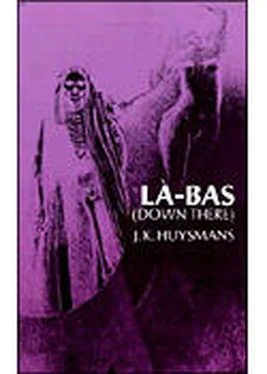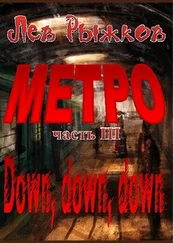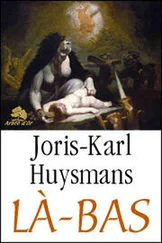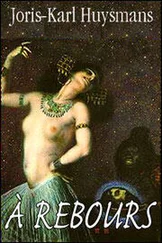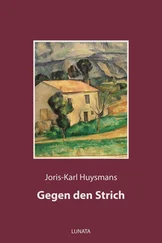Joris-Karl Huysmans - Down There (Là-Bas)
Здесь есть возможность читать онлайн «Joris-Karl Huysmans - Down There (Là-Bas)» весь текст электронной книги совершенно бесплатно (целиком полную версию без сокращений). В некоторых случаях можно слушать аудио, скачать через торрент в формате fb2 и присутствует краткое содержание. Жанр: Классическая проза, на английском языке. Описание произведения, (предисловие) а так же отзывы посетителей доступны на портале библиотеки ЛибКат.
- Название:Down There (Là-Bas)
- Автор:
- Жанр:
- Год:неизвестен
- ISBN:нет данных
- Рейтинг книги:3 / 5. Голосов: 1
-
Избранное:Добавить в избранное
- Отзывы:
-
Ваша оценка:
- 60
- 1
- 2
- 3
- 4
- 5
Down There (Là-Bas): краткое содержание, описание и аннотация
Предлагаем к чтению аннотацию, описание, краткое содержание или предисловие (зависит от того, что написал сам автор книги «Down There (Là-Bas)»). Если вы не нашли необходимую информацию о книге — напишите в комментариях, мы постараемся отыскать её.
Down There (Là-Bas) — читать онлайн бесплатно полную книгу (весь текст) целиком
Ниже представлен текст книги, разбитый по страницам. Система сохранения места последней прочитанной страницы, позволяет с удобством читать онлайн бесплатно книгу «Down There (Là-Bas)», без необходимости каждый раз заново искать на чём Вы остановились. Поставьте закладку, и сможете в любой момент перейти на страницу, на которой закончили чтение.
Интервал:
Закладка:
The Bishops seated themselves in the front row, surrounding Jean de Malestroit, who from a raised seat dominated the court.
Under the escort of the men-at-arms Gilles entered. He was broken and haggard and had aged twenty years in one night. His eyes burned behind seared lids. His cheeks shook. Upon injunction he began the recital of his crimes.
In a laboured voice, choked by tears, he recounted his abductions of children, his hideous tactics, his infernal stimulations, his impetuous murders, his implacable violations. Obsessed by the vision of his victims, he described their agonies drawn out or hastened, their cries, the rattle in their throats. He confessed to having wallowed in the elastic warmth of their intestines. He confessed that he had ripped out their hearts through wounds enlarged and opening like ripe fruit. And with the eyes of a somnambulist he looked down at his fingers and shook them as if blood were dripping from them.
The thunder-struck audience kept a mournful silence which was lacerated suddenly by a few short cries, and the attendants, at a run, carried out fainting women, mad with horror.
He seemed to see nothing, to hear nothing. He continued to tell off the frightful rosary of his crimes. Then his voice became raucous. He was coming to the sepulchral violations, and now to the torture of the little children whom he had cajoled in order to cut their throats as he kissed them.
He divulged every detail. The account was so formidable, so atrocious, that beneath their golden caps the bishops blanched. These priests, tempered in the fires of confessional, these judges who in that time of demonomania and murder had never heard more terrifying confessions, these prelates whom no depravity had ever astonished, made the sign of the Cross, and Jean de Malestroit rose and for very shame veiled the face of the Christ.
Then all lowered their heads, and without a word they listened. The Marshal, bathed in sweat, his face downcast, looked now at the crucifix whose invisible head and bristling crown of thorns gave their shapes to the veil.
He finished his narrative and broke down completely. Till now he had stood erect, speaking as if in a daze, recounting to himself, aloud, the memory of his ineradicable crimes. But at the end of the story his forces abandoned him. He fell on his knees and, shaken by terrific sobs, he cried, "O God, O my Redeemer, I beseech mercy and pardon!" Then the ferocious and haughty baron, the first of his caste no doubt, humiliated himself. He turned toward the people and said, weeping, "Ye, the parents of those whom I have so cruelly put to death, give, ah give me, the succour of your pious prayers!"
Then in its white splendour the soul of the Middle Ages burst forth radiant.
Jean de Malestroit left his seat and raised the accused, who was beating the flagstones with his despairing forehead. The judge in de Malestroit disappeared, the priest alone remained. He embraced the sinner who was repenting and lamenting his fault.
A shudder overran the audience when Jean de Malestroit, with Gilles's head on his breast, said to him, "Pray that the just and rightful wrath of the Most High be averted, weep that your tears may wash out the blood lust from your being!"
And with one accord everybody in the room knelt down and prayed for the assassin. When the orisons were hushed there was an instant of wild terror and commotion. Driven beyond human limits of horror and pity, the crowd tossed and surged. The judges of the Tribunal, silent, enervated, reconquered themselves.
With a gesture, brushing away his tears, the Prosecutor arrested the proceedings. He said that the crimes were "clear and apparent," that the proofs were manifest, that the court would now "in its conscience and soul" chastise the culprit, and he demanded that the day of passing judgment be fixed. The Tribunal designated the day after the next.
And that day the Official of the church of Nantes, Jacques de Pentcoetdic, read in succession the two sentences. The first, passed by the Bishop and the Inquisitor for the acts coming under their common jurisdiction, began thus:
"The Holy Name of Christ invoked, we, Jean, Bishop of Nantes, and Brother Jean Blouyn, bachelor in our Holy Scriptures, of the order of the preaching friars of Nantes, and delegate of the Inquisitor of heresies for the city and diocese of Nantes, in session of the Tribunal and having before our eyes God alone-"
And after enumerating the crimes it concluded:
"We pronounce, decide, and declare, that thou, Gilles de Rais, cited unto our Tribunal, art heinously guilty of heresy, apostasy, and evocation of demons; that for these crimes thou hast incurred the sentence of excommunication and all other penalties determined by the law."
The second judgment, rendered by the Bishop alone, on the crimes of sodomy, sacrilege, and violation of the immunities of the Church, which more particularly concerned his authority, ended in the same conclusions and in the pronunciation, in almost identical form, of the same penalty.
Gilles listened with bowed head to the reading of these judgments. When it was over the Bishop and the Inquisitor said to him, "Will you, now that you detest your errors, your evocations, and your crimes, be reincorporated into the Church our Mother?"
And upon the ardent prayers of the Marshal they relieved him of all excommunication and admitted him to participate in the sacraments. The justice of God was satisfied, the crime was recognized, punished, but effaced by contrition and penitence. Only human justice remained.
The Bishop and the Inquisitor remanded the culprit to the secular court, which, holding against him the abductions and the murders, pronounced the penalty of death and attainder. Prelati and the other accomplices were at the same time condemned to be hanged and burned alive.
"Cry to God mercy," said Pierre de l'Hospital, who presided over the civil hearings, "and dispose yourself to die in good state with a great repentance for having committed such crimes."
The recommendation was unnecessary. Gilles now faced death without fear. He hoped, humbly, avidly, in the mercy of the Saviour. He cried out fervently for the terrestrial expiation, the stake, to redeem him from the eternal flames after his death.
Far from his châteaux, in his dungeon, alone, he had opened himself and viewed the cloaca which had so long been fed by the residual waters escaped from the abattoirs of Tiffauges and Mâchecoul. He had sobbed in despair of ever draining this stagnant pool. And thunder-smitten by grace, in a cry of horror and joy, he had suddenly seen his soul overflow and sweep away the dank fen before a torrential current of prayer and ecstasy. The butcher of Sodom had destroyed himself, the companion of Jeanne d'Arc had reappeared, the mystic whose soul poured out to God, in bursts of adoration, in floods of tears.
Then he thought of his friends and wished that they also might die in a state of grace. He asked the Bishop of Nantes that they might be executed not before nor after him, but at the same time. He carried his point that he was the most guilty and that he must instruct them in saving their souls and assist them at the moment when they should mount the scaffold. Jean de Malestroit granted the supplication.
"What is curious," said Durtal, interrupting his writing to light a cigarette, "is that-"
A gentle ring. Mme. Chantelouve entered.
She declared that she could stay only two minutes. She had a carriage waiting below. "Tonight," she said, "I will call for you at nine. First write me a letter in practically these terms," and she handed him a paper. He unfolded it and read this declaration:
"I certify that all that I have said and written about the Black Mass, about the priest who celebrated it, about the place where I claimed to have witnessed it, about the persons alleged to have been there, is pure invention. I affirm that I imagined all these incidents, that, in consequence, all that I have narrated is false."
Читать дальшеИнтервал:
Закладка:
Похожие книги на «Down There (Là-Bas)»
Представляем Вашему вниманию похожие книги на «Down There (Là-Bas)» списком для выбора. Мы отобрали схожую по названию и смыслу литературу в надежде предоставить читателям больше вариантов отыскать новые, интересные, ещё непрочитанные произведения.
Обсуждение, отзывы о книге «Down There (Là-Bas)» и просто собственные мнения читателей. Оставьте ваши комментарии, напишите, что Вы думаете о произведении, его смысле или главных героях. Укажите что конкретно понравилось, а что нет, и почему Вы так считаете.
